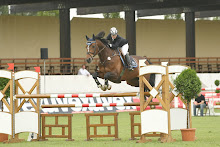One Thursday we talked about Dust in The Golden Compass. I think that the elders are hiding something about the Dust. As if they know something that know body else knows about, or at least the children especially Lyra should not know. Although on pg. 82 when Lyra explains in her own words what Dust means, Mrs. Coulter and her Daemon were very shocked what she had to say. Also throughout the first couple of chapters I really think that the Master wants to tell Lyra what is going on but has a feeling she should not know until she is old enough to understand everything.

I think having a pet is a great thing; I just wish mine could talk back to me. I think the idea of having a pet connects to many children. I remember when i was little, spending days pretending to be a dog with my best friend, Shadan. We would go on adventures and I would just hang out with my big collie all day. Then, when I would leave to hang out with other children he would sit on the porch and wait for me. I can understand why animals would be a catching point for children. Having an animal draws the reader in. However, I feel like it also makes Ged more dislikeable because of the way he treated his pet. He didn't mourn when it died, or really even care. I think this puts children off because they so greatly connect with animals.
ReplyDeleteIt is interesting that all of our main characters so far have animal companions, and even Peter Pan has Tinker Bell hanging around. Having an animal friend seems like a good way to make these characters more relatable to young readers, who may also have a pet at home. I wonder if the loss of these animals (as often seems to happen in children’s books) is in part to help children deal with the passing of their own pets, or perhaps the passing of human family members or friends. Broaching the subject of death is never any easy subject, especially in youth literature, but maybe a child can feel a certain companionship with the character as their own pet or loved one dies, and perhaps learn how to better cope with that loss as a result.
ReplyDeleteI agree with the thought that the pet helps add to the character or owner. Also, I feel that the way in which the owner treats its pet is just as important in understanding the character. It makes me question: would Lyra have treat Pan the same way if she couldn't feel his pain? I know there are mixed feelings about Lyra as a hero and this question definitely makes me wonder.
ReplyDeleteAs obvious as it is, I didn't piece the "pet" stuff together. I think it is an important part of the novel and I agree that it adds character. Now that I think about it, something else interesting is the daemons in the Golden Compass are kind of like pets. I guess I say that mostly in sense that they all take the shape of an animal, not to mention they are obediant to the person they are attached to.
ReplyDeleteI definitely believe that the animal part of these stories have more depth than what we've given it and I am glad you brought it up!
I think Lyra's interpretation of Dust is really interesting as well. Dust is introduced by Lord Asriel in the beginning of the novel. The whole time you think you have somewhat of an idea what "Dust" is, and I thought for sure in the end I would be enlightened. Pullman does somewaht clarify the concept of Dust, but not completely. I think each main character has a different interpretation of what they think Dust is. I think that Pullman did this intentionally making each reader also walk away with a differerent idea of what Dust really is.
ReplyDeleteI also am intrigued by Lyra's interpretation of Dust. Just as readers are going to interpret Dust differently, the characters in the novel interpret it differently as well. The animal part of these stories is also an interesting point you made! It seems so far that all of these characters rely on their companions throughout their young lives. This shows that children need someone they can rely on, and their pets always seem to be there for them any time they are in a bind.
ReplyDelete